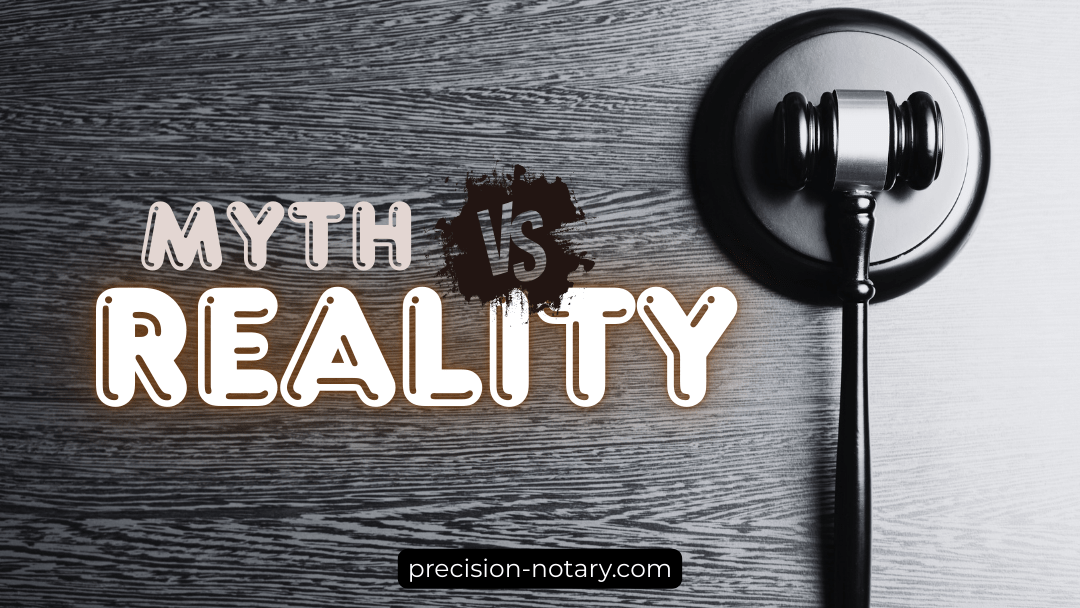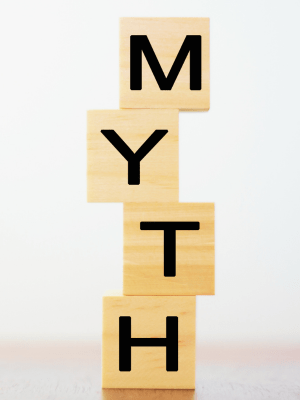Between real estate deals, estate plans, and everything in between, notarization plays a key role in keeping important transactions secure and trustworthy. Whether you’re signing a will, closing on a home, or authorizing travel for a minor, the notary’s job is to ensure the signatures are genuine and given willingly.
Yet, despite how often notarization shows up in everyday life, it’s still surrounded by confusion. Let’s clear up some of the most common myths and set the record straight.
Myth #1: A notary can provide legal advice.
Reality: Notaries are not attorneys (unless they are also licensed as such), and most are legally prohibited from giving legal advice or interpreting the content of a document. Their job is to verify identity and witness signatures—not to explain legal clauses or recommend legal action.
Myth #2: A notarized document makes it automatically “legal.”
Reality: Notarization confirms that the signature is genuine, but it doesn’t validate the content of the document. A notarized document could still be legally unenforceable if the terms are invalid, incomplete, or unlawful. Think of notarization as authentication, not a stamp of legal approval.
Myth #3: Notaries can notarize anything, anytime.
Reality: Not quite. A notary can only perform notarizations that comply with state laws. That includes ensuring the signer is present (yes, physically or virtually in some cases), aware, and willing. Some documents, such as birth certificates, are already official records and can’t be notarized.
Myth #4: You don’t need ID if the notary knows you.
Reality: Even if you and the notary go way back, they’re still required to follow proper ID verification protocols unless your state allows for personal knowledge or credible witnesses. A handshake and a smile won’t cut it—ID is non-negotiable in most notarizations.
Myth #5: A notary can “backdate” a document.
Reality: Absolutely not. The notary certificate must reflect the actual date the notarization occurred. Backdating is considered fraud and can have serious legal consequences—for both the notary and the signer.
Myth #6: A document must be signed in front of the notary.
Reality: It depends on the type of notarization. In a jurat, yes—the signer must sign in front of the notary. But for an acknowledgment, the signer may have already signed the document and is simply acknowledging that they did so. This is why notaries ask questions—it’s not personal; it’s protocol.
Myth #7: All notaries offer the same services.
Reality: Not necessarily. Some specialize in loan signings, estate planning, or apostille facilitation. Others offer remote online notarization (RON) or bilingual services. A notary’s training, certification, and scope can vary widely, so it’s worth checking what they offer.
Myth #8: Notarization is just a quick stamp and signature.
Reality: It may look simple, but a responsible notary is assessing ID, checking for coercion, confirming understanding, and documenting the transaction—all in a short time frame. There’s more diligence involved than meets the eye.
Myth #9: You can notarize a document with blank spaces.
Reality: No reputable notary will do that. Blank spaces can be filled in later, potentially altering the document’s meaning after notarization. Most notaries will ask you to complete the document fully (or draw lines through unused sections) before proceeding.
Myth #10: Notarization is outdated in the digital age.
Reality: On the contrary, notarization is evolving. Many states now allow Remote Online Notarization (RON), making it possible to notarize documents securely via video conference. It’s modernized, not obsolete.
Notaries serve as impartial witnesses in some of life’s most important moments—whether that’s closing on a home, executing a power of attorney, or finalizing a will. Understanding what notarization does (and doesn’t) do can help you approach the process with clarity and confidence.
Have questions about notarization or need a professional to help with your next signing?
Reach out—knowledge is power, but so is having a great notary on your side.





Recent Comments